Australian intensive care nurse reveals the horrors of working on London’s COVID frontline
Desperate resuscitations, 15-hour shifts, horror nightmares and heartbreak. An Aussie nurse describes what it’s like working on the frontline in COVID-ravaged London.
National
Don't miss out on the headlines from National. Followed categories will be added to My News.
An Australian intensive care nurse on the COVID frontline in London has nightmares about alarms going off with no-one being able to help.
As a new coronavirus strain tips Britain’s estimated death toll over 100,000, Kathryn Lennon has laid bare the reality of the city’s choked hospital network.
Shifts are now going up to 15 hours and the standard ratios of one nurse to one patient are being smashed.
Nurses have been looking after up to four patients on their own during some parts of their shifts.
And intensive care doctors have warned they were almost at the point where they had to prioritise which patients received care because of a shortage of beds and staff.
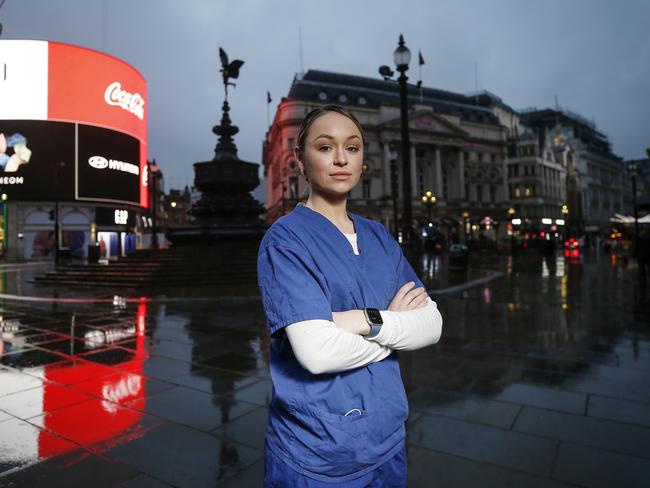
Ms Lennon, who is from Cairns but moved to the UK in December 2019, said the nurses were struggling to cope with the physical and emotional demands of the job.
“You just hear emergency buzzers go off all the time, you don’t stop, your brain doesn’t switch off,” she said.
“Last night I just kept having nightmares about people dying in the bays. Usually those nightmares involve pressing alarms and no one coming and yelling for help.
“You just always hear emergency alarms in your dreams.”
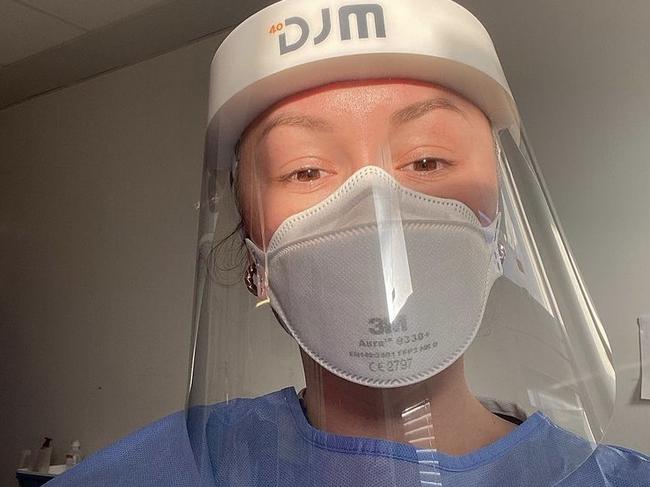
Some shifts are heartbreaking, as she has had to show family members how to put on protective equipment so they can say goodbye to their loved ones.
“A patient in my bay died and we cleaned the body. The patient’s body went to the morgue and we cleaned the bed space,” she said.
“You don’t have time to be sad because someone else needs that bed.”
There are some moments of hope, with some patients being able to be revived – but the intensity of the disease seems worse in the second wave, she said.
“I did CPR on someone who we got back but they’re still in a coma so I don’t know what is going to happen to them,” Ms Lennon said.
“It is really, really horrific, it’s horrific to be in intensive care at the moment.”
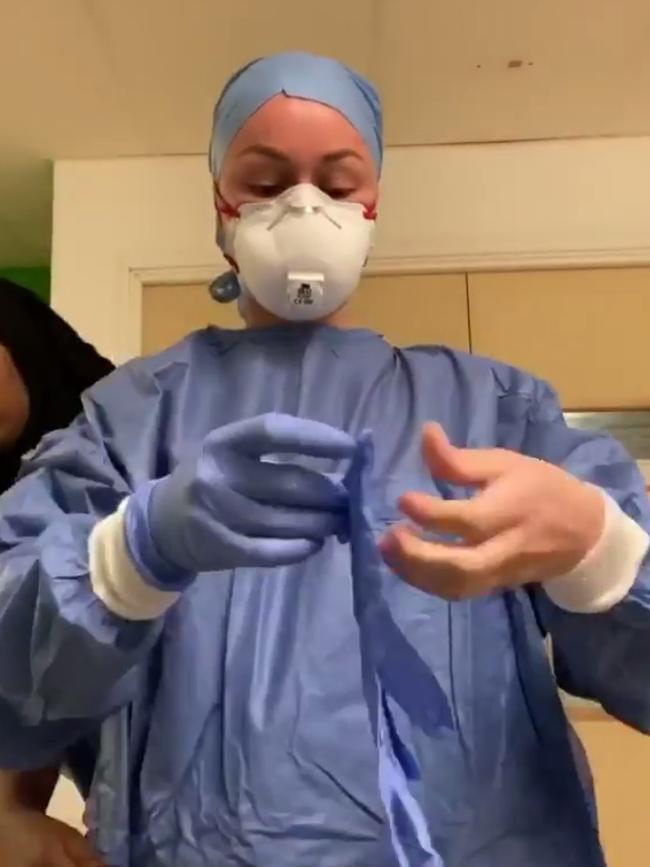
Her typical day starts when she leaves home at 6.30am and she returns home at 9.30pm.
The uncomfortable personal protective equipment must be worn at all times in the ward.
Nurses cannot eat or drink in the protective gear, so they may go up to six hours without a food break because of the time and inconvenience of putting it on and off.
The added layers were hot and leave nurses drenched in sweat, particularly when doing CPR.
Seriously ill patients need to be turned on to their stomach to help them breathe, which takes up to eight staff 30 minutes.
“It’s very difficult to manage someone on their tummy especially when they are very unwell,” Ms Lennon said.
Intensive care units have been swamped in the UK, with London being one of the hardest hit areas.
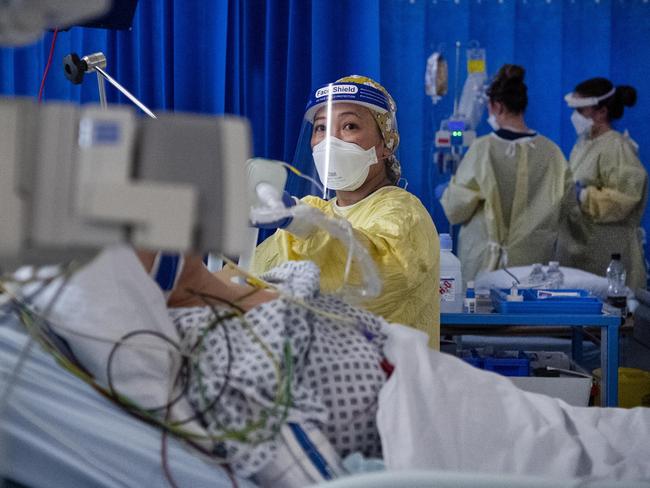
Patients need ventilator support, which can only be carried out by specialist nurses.
“Intensive care is getting smashed because people need ventilators and the only place in the whole hospital that knows how to look after patients who are ventilated are intensive care nurses,” Ms Lennon said.
“People on the wards are deteriorating, whether or not the disease is stronger this time or people are sicker.”
British Prime Minister Boris Johnson warned there was a serious risk of intensive care units being “overwhelmed” this week.
And senior medic Professor Rupert Pearse told of the “moral distress” that doctors were dealing with when they were unable to provide the care a patient needed because there were not enough beds or equipment.
“The burden of decision making around ICU (intensive care unit) admission traditionally falls on senior ICU doctors,” he said.
“Most of us are privately very worried about what will happen if we run out of resources.”
Britain was the first country in the world to approve a clinically-tested coronavirus jab, with more than 3 million doses already handed out.
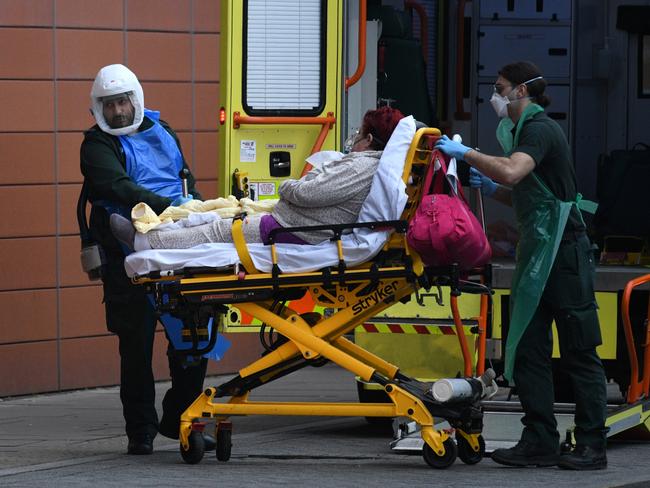
The country was on track to get to 15 million elderly Brits vaccinated by the middle of February, which would reduce the number of hospital admissions.
Ms Lennon, as a frontline health worker, was among those who have received their first dose.
“The vaccine is definitely making us feel more confident, it’s like the light out of this. I’m stoked to have the vaccine,” she said.
Her second dose has been scheduled for next month.
“It’s been rebooked for February 23, my birthday is on February 12 and it’s going to be the best late present ever.”
The UK has delayed second doses of the Pfizer and Oxford vaccines for up to 12 weeks, instead of the recommended three or four week gap, so more of the population gets vaccinated in the first round.
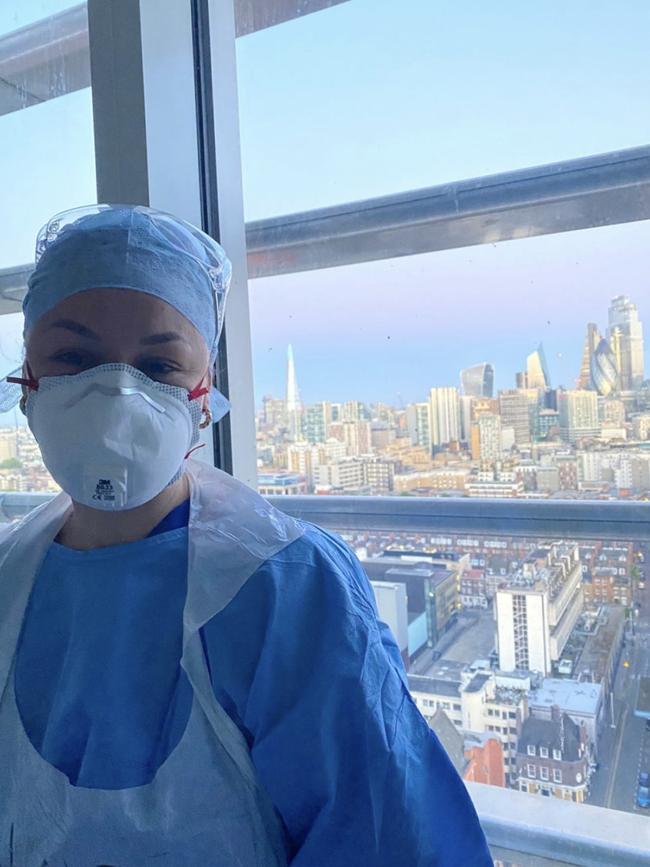
Some scientists had raised concerns about the delays. Israel is distributing its vaccine in line with Pfizer’s suggested two-dose regimen.
However, Ms Lennon backed the plan, even if it meant she was forced to wait.
“I’m happy to delay my vaccination for others to be vaccinated who are in a high risk category if it takes pressure off the health system,” she said.
And she urged Australians who were offered a coronavirus jab to take up the offer.
“Get it, get it, you don’t want to risk it,” she said.
“If you can see what’s happening here, you don’t want this.”
stephen.drill@news.co.uk
More Coverage
Originally published as Australian intensive care nurse reveals the horrors of working on London’s COVID frontline





